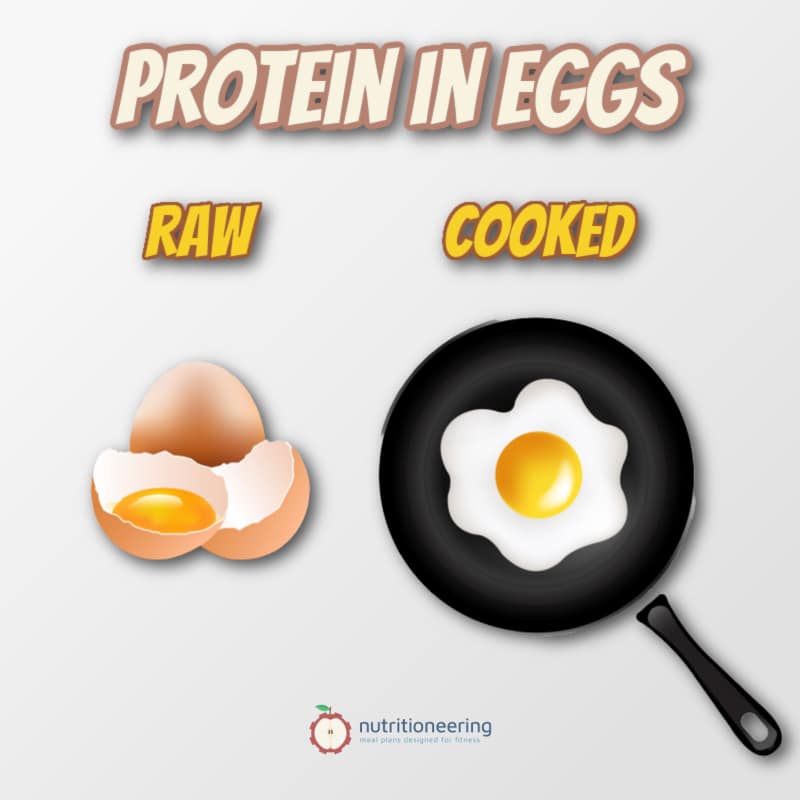How Many Grams of Protein in 3 Eggs? A Detailed Analysis
Eggs are a popular and versatile food item that can be prepared in various ways, from scrambled to poached to sunny-side-up. They are not only delicious but also packed with essential nutrients, including protein. In this article, we will delve into the topic of how many grams of protein are found in three eggs. Whether you're a fitness enthusiast, a health-conscious individual, or simply curious, understanding the protein content in eggs can be beneficial for your dietary choices.
1. Egg Nutrition Overview

Egg Nutrition Overview
Before we get into the specifics of how much protein is in three eggs, let's take a brief look at the nutritional composition of eggs. Eggs are considered a nutritional powerhouse as they provide a wide array of essential nutrients, including vitamins, minerals, and of course, protein. Here's an overview:
Calories in Eggs: On average, one large egg contains about 68 calories, making it a relatively low-calorie food.
Protein Content: Eggs are renowned for their high protein content. A single large egg contains approximately 6.3 grams of protein.
Fat Content: Eggs contain a moderate amount of fat, with about 4.8 grams of fat per large egg.
Carbohydrates: Eggs are very low in carbohydrates, with less than 1 gram per egg.
2. How Many Grams of Protein in 3 Eggs?

How Many Grams of Protein in 3 Eggs?
Now, let's answer the main question: how many grams of protein are there in three eggs? To find out, we'll simply multiply the protein content of one egg by three:
6.3 grams of protein (per egg) x 3 (eggs) = 18.9 grams of protein
So, there are approximately 18.9 grams of protein in three eggs. This makes eggs an excellent source of protein, especially for those looking to boost their protein intake as part of a balanced diet.
3. Comparing Egg Protein to Other Sources
To put the protein content of three eggs into perspective, let's compare it to the protein content of some other common food items.
Food Item | Protein Content (per 3 servings)
3 Eggs | 18.9 grams 4 oz Chicken Breast | 26 grams 1 cup Greek Yogurt | 15 grams 1 cup Quinoa | 12 grams 1 cup Lentils | 18 grams 3 oz Salmon | 21 grams
As you can see, three eggs provide a significant amount of protein, comparable to other popular protein sources like chicken breast and salmon. Incorporating eggs into your diet can be an excellent way to meet your protein needs, whether you're an athlete, a bodybuilder, or simply looking to maintain a healthy lifestyle.
4. Health Benefits of Egg Protein
Aside from being a convenient and cost-effective source of protein, eggs offer several health benefits:
Muscle Growth and Repair: The high-quality protein in eggs contains all the essential amino acids needed for muscle growth and repair.
Satiety: Protein-rich foods like eggs help you feel full and satisfied, reducing the likelihood of overeating.
Nutrient Density: Eggs are packed with vitamins and minerals, including B vitamins, choline, selenium, and more.
Weight Management: Including eggs in your diet may assist in weight management by supporting muscle mass and reducing overall calorie intake.
In conclusion, three eggs provide approximately 18.9 grams of protein, making them a valuable addition to your diet, especially if you're looking to increase your protein intake. Eggs offer not only a significant protein boost but also a wide range of essential nutrients, making them a nutritious choice for individuals of all ages and dietary preferences. So, whether you enjoy your eggs scrambled, boiled, or in an omelet, you can rest assured that you're fueling your body with a protein-rich and nutrient-dense food source.